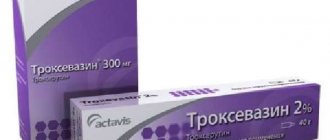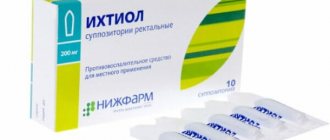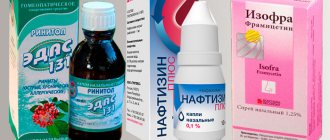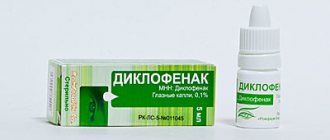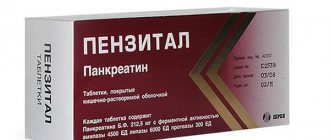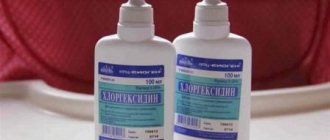*This material is subjective in nature and is not an advertisement and does not serve as a purchase guide. Before purchasing, consultation with a specialist is required. About the selection criteria.
Almost every woman knows firsthand what inflammation in the intimate area is. On such days, your well-being and mood significantly decrease, and it is impossible to fully perform work duties and household chores. An excellent option would be a short break from work to visit a gynecologist’s office. After conducting the necessary laboratory tests and receiving the results, the doctor prescribes treatment that will effectively affect the source of inflammation. The variety of anti-inflammatory vaginal suppositories is so great that it’s easy to get confused when choosing. This rating selection will introduce you to the best drugs in the form of suppositories, enlighten you about their mechanism of action, price offer and customer reviews.
Is it possible to use suppositories for inflammation in the treatment of infections: Methyluracil suppositories
Methyluracil suppositories for inflammation in gynecology
Medical suppositories are called suppositories in medical parlance. This is a dosage form of drugs that is characterized by increased resistance to room temperature, but at the same time undergoes a melting process when it enters the human body. Is it possible to use suppositories for inflammation and in the treatment of infections?
For gynecological pathologies, suppositories are one of the most commonly used types of medications. They are prescribed to eliminate inflammatory processes and infectious lesions. And that's why:
- They have a local effect, so they do not have a harmful effect on the gastrointestinal tract.
- Effectively fight inflammation and infection, quickly eliminating unpleasant symptoms of the disease.
- The rate of dissolution of the drug and absorption of its active substances into the blood is less than 1 hour.
- The risk of developing side effects or allergic reactions when using this form of medication is minimal.
- Among candles there are a lot of products that have a completely natural composition.
As you can see, suppositories can be used to fight infections and inflammation. One of the most popular drugs is Methyluracil suppositories. What is this drug and how to use it?
- Methyluracil suppositories are a powerful anti-inflammatory agent that is simultaneously capable of restoring the structure of damaged mucosal cells.
- Under their influence, local metabolism is normalized, wounds and ulcers on the walls of the epithelium are healed.
- For gynecological diseases, these suppositories are usually used as an additional element of the therapeutic regimen.
- They can be administered rectally or vaginally - this does not affect the effectiveness in any way. But only a doctor can accurately determine the optimal method of using Methyluracil suppositories.
Medication used:
- For the treatment of erosions of the uterine cervix, mechanical damage to the walls of the vagina, as well as after surgical interventions.
- It helps not only to cope with infectious processes, but also to prevent their development.
Application:
- Suppositories must be administered immediately after they are removed from the protective packaging.
- The daily dosage is 1-4 suppositories at regular intervals.
- The course of therapy can last from 1 week to 4 months .
- It all depends on the specific diagnosis and severity of the disease.
Medicines for gynecological diseases should be prescribed by the attending physician, but every woman needs to study the instructions in detail before using them. This is important to prevent the development of side effects, as well as to detect possible contraindications to the use of the drug.
General information
Anti-inflammatory drugs in the form of suppositories are prescribed for various diseases of the female reproductive system.
Some gynecological suppositories are used vaginally, others rectally. But in general, the list of gynecological suppositories is very wide. Anti-inflammatory drugs in gynecology are always prescribed if an inflammatory process is noted. They are widely used, but at the same time, like other medications, vaginal and rectal suppositories have certain disadvantages.
Types of anti-inflammatory suppositories in gynecology for infections: names
Types of anti-inflammatory suppositories in gynecology
There are many types of suppositories used for therapeutic and preventive purposes in gynecology. Thus, they are distinguished by composition, therapeutic group and other criteria. However, there is a gradation of suppositories according to the specifics of their use. You will find below the types of anti-inflammatory suppositories in gynecology for inflammation and infections. According to this aspect, topical drugs used in gynecology are as follows - list:
Rectal suppositories:
- Such suppositories are shaped like a cone or “bullet” with a pointed or rounded tip on one side.
- Such drugs are injected into the rectum and usually have an analgesic, anti-inflammatory and antipyretic effect.
- They are usually used as secondary means for symptomatic treatment.
- One of the most popular drugs is Diclofenac suppositories . It is used to combat pain, discomfort, inflammation in various gynecological diseases, as well as after surgical interventions on the pelvic organs. In each case, the dosage is determined strictly individually.
This drug from the NSAID group is also effective for primary dysmenorrhea - menstrual pain not associated with cancer or other dangerous disorders in the reproductive or endocrine system. Application:
- In this case, the dosage of the drug varies within 1-2 suppositories per day . But if necessary, it can be increased.
- You can use suppositories with diclofenac for menstrual pain at intervals of 4-6 hours .
- It is best to use the medicine when the first symptoms of illness appear.
Vaginal suppositories:
- Externally, such drugs look like a round tablet.
- They are usually convex, sometimes ovoid.
- As the name suggests, these suppositories are intended to be inserted directly into the vagina.
Royal candles:
- Such medications are injected only by a specialist directly into the cervix.
- A woman will not be able to introduce them on her own without special knowledge and experience.
The main guarantee of treatment safety is an individual approach to the selection of suppositories. Indeed, in this case it is necessary to rely on certain criteria, including even age, sometimes weight, pregnancy planning, etc.
Genital herpes
Antiviral suppositories and other forms of medications are used to treat genital herpes
- The treatment regimen includes local drugs that contain A-interferon - they need to be used in 1-2 pcs. for one week.
- Genferon and Viferon are also prescribed in the form of suppositories. Viferon is used 2 times a day for 7 days. Viferon suppositories are also effective for colds: if a woman has a cold, the doctor sometimes prescribes them as part of complex therapy.
- In addition to suppositories, ointments are used to treat the vulva and for tampons: Epigen , Acyclovir , Bonafton , Megosin , Alpizarin .
Suppositories for inflammation in gynecology: principle of action, application
Suppositories for inflammation in gynecology
Suppositories used in gynecological practice usually act in several directions at once. The composition of suppositories in gynecology helps eliminate inflammation, fight infection, and accelerate tissue regeneration.
Why candles? They have a special operating principle:
- The vaginal mucosa is dotted with a large number of blood vessels, which ensures rapid absorption of the components of the suppositories: they enter the bloodstream approximately 15-20 minutes after administration of the drug.
- The active substance of the drug reaches the uterine appendages, where it directly affects the cause of the ailment.
A huge advantage of suppositories is their application, namely that they act directly on the area of the pathological lesion. This eliminates the risk of developing serious side effects from many internal organs and systems.
Suppositories as a dosage form
Suppositories are one of the best medicines that can effectively cure women's diseases. Suppositories are used for the prevention of female diseases, as well as for their treatment. The composition includes a base, which gives the product the shape of a candle, as well as a medicinal substance. The main feature of this medicine is that its form is stored at room temperature, and turns into liquid form when body temperature is noted.
Anti-inflammatory vaginal suppositories are prescribed for a variety of diseases of the female reproductive system. Vaginal suppositories are also used to prevent such diseases. In particular, vaginal suppositories are prescribed for inflammation of the ovaries , antiviral suppositories for women, etc.
Despite the fact that the list of vaginal suppositories is very large, their names are known to many, and in pharmacies most of these drugs are sold without a prescription, the doctor should tell you individually which antibacterial or antiviral drugs should be used.
It is very important to know how to properly administer suppositories. How to use this form of medication is indicated in the instructions. But how to place suppositories may vary depending on the drug. For example, some suppositories are recommended to be used before bedtime, once a day.
To insert candles correctly, you need to take a lying position and wash your hands first. Also, before administering the medicine, you need to prepare a sanitary pad.
All candles are usually divided into different types depending on where they are administered:
| Rectal | They are inserted into the rectum through the anus, they are produced in the shape of a cone, cigar, or sharp cylinder. How to insert suppositories into the rectum is described in the instructions. It is better to place suppositories in the rectum after bowel movements. |
| Vaginal | Vaginal suppositories, which are produced in a cone-shaped or egg-shaped form, as well as in the form of balls |
| Sticks | They are inserted into the ureter, cervix, etc. |
The main advantage of using this form of medication is that the active substance enters the bloodstream relatively quickly (about half after half an hour, 100% after an hour). At the same time, it does not enter the gastrointestinal tract and is not destroyed in the liver. Also, vaginal suppositories have not only a general, but also a local effect.
In addition, the application process is very simple and painless; suppositories very rarely cause allergic reactions.
Inexpensive women's suppositories for inflammation in gynecology - names of cheap products: Indomethacin
Inexpensive female suppositories for inflammation in gynecology
Suppositories used in gynecology have completely different prices. It depends on many factors:
- Country of origin
- Components included in the product
- Therapeutic purpose of the drug
- Pharmacy chain where medicines are sold, etc.
However, there are several drugs available that are highly effective but have a fairly low cost. Here are the names of cheap remedies - inexpensive female suppositories for inflammation in gynecology:
- Banbakt . Vaginal suppositories from an Indian manufacturer. Designed for the treatment of different types of vaginitis. They destroy pathogenic microflora and fight inflammatory processes in the vagina.
- Femiclin . Vaginal tablets that are used to treat infectious and inflammatory processes in the vagina. The product effectively fights bacterial and fungal pathogens of pathologies of the genital organs in women. In addition, it is used to treat trichomoniasis.
- Gainomax . Used to treat vulvovaginal candidiasis, bacterial and trichomonas vaginitis.
Another anti-inflammatory drug that is not very expensive is Indomethacin . The candles contain an active component of the same name. Suppositories are used to treat:
- Inflammation of the uterine appendages
- Menstrual irregularities
- Uterine fibroids
- Ovarian cysts
- Endometritis and other inflammations of the genital organs
Application of Indomethacin:
- Suppositories can be administered either rectally or vaginally.
- Before using them, you need to wash yourself well and dry the skin in the genital area.
- After this, lie on your back and insert the suppository into the vaginal or rectal cavity.
- Lie down for a few minutes in complete rest.
The dosage regimen is selected individually, as is the method of administering suppositories. You can use from 50 to 100 mg at a time . It is best to carry out the procedure in the evening, before going to bed, as this will allow the active substance of the drug to be completely absorbed into the mucous membranes of the vagina or rectum.
Mechanism of action
All candles are united by their mechanism of action. They consist of an active substance and a fatty base (paraffins, gelatins or glycerols). At room temperature, candles are characterized by a solid state of aggregation. However, already at the temperature of the human body (+36ºС), the material from which the candle consists begins to melt. The substances contained in the candle come out and begin their active action.
Some suppositories act exclusively locally, on the mucous membranes. However, since the superficial tissues of the vagina and rectum are saturated with small blood vessels, some of the active substances enter the bloodstream and circulate in the pelvic area, thereby exerting their therapeutic effect.
Absorption into the blood occurs very quickly - approximately half of the active component of the suppository enters the blood within half an hour, and the entire substance becomes biologically available within an hour. In this case, the active components affect the general blood flow to a very small extent and almost do not reach the liver and kidneys.
Another advantage of suppositories over dosage forms taken orally is that suppositories do not cause allergic reactions characteristic of the gastrointestinal tract.
Gynecological suppositories can have different types of action. The most commonly used candles have the following effects:
- directed against infection
- anti-inflammatory,
- tissue repair,
- restoring vaginal microflora,
- anesthetic.
There are not many drugs that have only one type of action. Typically, suppositories have a complex effect, that is, for example, they can simultaneously influence pathogens and relieve inflammation. Some anti-inflammatory suppositories contain vitamins necessary for tissue functioning, substances that stimulate local immunity, etc.
The components contained in suppositories can be either synthetic or natural substances. The main infectious agents causing gynecological diseases are viruses, bacteria, fungi and protozoa. Therefore, suppositories may include antiviral components, antifungal agents, antibiotics and antiseptics.
Photo: unsplash.com
Antibacterial components of candles
They serve as various substances that kill bacteria and prevent their reproduction. Antibiotic suppositories used in gynecology usually contain drugs such as chlorhexidine, metronidazole, cotrixomazole, penicillins, macrolides, and iodine. It is important to remember that any type of antibiotic has its own indications and contraindications, and improper use of antibacterial drugs, as well as exceeding the dosage, can lead to allergic reactions, as well as inhibition of the normal vaginal microflora, which performs protective functions.
Antifungal components
This type of substance is active only against pathogenic fungi. Typically, vaginal suppositories are equipped with these components. The most popular antifungal drugs are fluconazole, clotrimazole, pimafucin. As a rule, the course of treatment for fungal diseases of the genital organs takes longer than antibiotic therapy.
Anti-inflammatory components
Anti-inflammatory suppositories are often used in the treatment of diseases. In gynecology, there are many drugs with a similar effect. They are used for what is popularly called “feminine inflammation.”
The main type of substances used in the treatment of gynecological inflammation are non-steroidal anti-inflammatory drugs. Their purpose is to eliminate signs of inflammation - pain and swelling. From a biochemical point of view, the mechanism of anti-inflammatory drugs is based on blocking the synthesis of prostaglandins. These may be components such as diclofenac, ichthyol or indomethacin. In some cases, the doctor may also prescribe suppositories with steroidal anti-inflammatory drugs, such as prednisolone.
Herbal Ingredients
Natural components are also often used in rectal and vaginal anti-inflammatory suppositories. Herbal candles may include extracts of chamomile, sage, belladonna, calendula, coniferous trees, cocoa butter, and eucalyptus. Candles containing sea buckthorn oil have gained great popularity. These suppositories can be used in childhood and old age, during pregnancy and lactation.
Women's suppositories for the treatment of candidal colpitis (thrush): Hexicon
Women's suppositories for the treatment of candidal colpitis
Thrush is a disease caused by pathogenic fungi of the genus Candida. Even in healthy women, these microorganisms are constantly present in small quantities on the mucous membranes of the vagina, but do not cause harm to health. But under the influence of certain factors they “awaken” and begin to actively reproduce. It is from this moment that the gradual development and manifestation of vaginal candidiasis occurs.
The disease can be quite successfully treated with creams and ointments with an antifungal effect. But the most preferred form of medication for thrush is still vaginal suppositories. Here are a few names of female suppositories for the treatment of candidal colpitis (thrush):
Ketoconazole:
- This is a fairly popular antimycotic drug, which is sold in several forms at once.
- The components of the product have a detrimental effect on various types of fungi that provoke gynecological diseases.
Itraconazole:
- Used to eliminate symptoms of vaginal candidiasis and destroy fungi of the genus Candida.
- Candles are placed once a day - before going to bed.
Hexicon candles:
- This is one of the most popular drugs in the fight against vaginal thrush.
- Has antiseptic and antifungal properties.
- In addition, they can be used for various sexually transmitted infections.
- The active component of Hexicon is chlorhexidine bigluconate .
- The drug must be administered intravaginally, 1 suppository twice a day.
- The average course of treatment is 7-10 days .
In addition, other suppositories can be used to treat vaginal candidiasis:
- Pimafucin
- Clotrimazole
- Livarol
- Candide B
- Zalain
- Ecofucin
- Genferon
- Neo penotran
As you can see, there are plenty of drugs for thrush. Suppositories can and should be combined with ointments that are used to apply to the skin of the genitals to prevent the spread of fungal infection.
Colpitis caused by Trichomonas
If trichomonas are detected in the vaginal contents, the patient is prescribed suppositories containing metronidazole, which has an antimicrobial effect and is effective in the fight against trichomonas. These are the drugs Flagyl , Metrovagin , etc. Metrovagin , Flagyl should be used 1 supp. before bedtime.
Metronidazole derivatives are also prescribed - Trichopolum , Klion D , Pitrid , Ginalgin , Flagyl , which are given 1 per day for 10 days. Other candles are also widely used:
- Gaynomax ( Tinidazole ). Gainomax suppositories are used for 10 days.
- Macmiror - contains nystatin and nifuratel, used for candidiasis, chlamydia, trichomoniasis , nonspecific vaginitis. Course of application – 8 days.
- Terzhinan , Mikozhinaks , Meratin-Combi - 1 pc. every day. within 10 days.
- Trichomonacid , Trichocid are also prescribed for 10 days.
- Neo-Penotran , containing metronidazole and miconazole, is used 2 times a day for two weeks.
- Hexicon – 3 times a day, Hexicon should be used for 1-3 weeks.
- Tinidazole is an analogue of the drug Hexicon. Tinidazole is used in the same way.
- Eucalymin - according to the regimen prescribed by the doctor.
It should be noted that for trichomonas colpitis, therapy with anti-inflammatory suppositories is carried out for three months, in cycles of 10 days. Start of use - immediately after menstruation.
A gynecologist will explain which female suppositories to use for inflammation and which is better.
Gynecological suppositories for cystitis: with antibiotic, sea buckthorn suppositories
Gynecological suppositories for cystitis
Cystitis is an inflammatory lesion of the bladder. Women are more susceptible to it than men, due to the anatomical features of the urinary tract. In most cases, the disease is triggered by the abnormal activity of different types of pathogenic bacteria. In this regard, gynecological suppositories with an antibiotic are used for treatment. Here is the list:
- Sintomycin
- Betadine
- McMirror
- Palin
- Urosept
Anti-inflammatory suppositories are used to reduce pain and eliminate inflammation. One of the most popular drugs is Sea Buckthorn suppositories:
- The active component of the medicine is indicated by its name - it is sea buckthorn berry oil.
- In addition to being an analgesic and anti-inflammatory, it also has antiseptic properties.
- To eliminate the pathological process in the bladder, they need to be administered 1 piece up to 3 times a day rectally .
- The course of treatment is at least 7 days .
The good thing about the drug is that it has virtually no contraindications for use. But if there is hypersensitivity to its components, the use of the product becomes impossible.
Nonspecific vaginitis
If a patient is diagnosed with nonspecific colpitis , she is prescribed broad-spectrum antibacterial vaginal suppositories or antiseptics.
The following suppositories can be prescribed to cure the inflammatory process in gynecology.
Polygynax
Polygynax contains nystatin, neomycin, polymyxin B. Polygynax is prescribed twice a day and should be used for 1-2 weeks.
Cost – from 320 rubles. for 6 pcs.
Terzhinan
The composition includes neomycin, ternidazole, prednisolone, nystatin. Terzhinan candles need to be placed once, in the evening, for 10 days.
Price – from 370 rub.
Meratin-Combi
Meratin contains neomycin, nystatin, prednisolone, ornidazole. You need to enter 1 sup. in the evening for 10 days.
The cost of Meratin-Combi is from 350 rubles.
Mikozhinaks
The composition includes nystatin, chloramphenicol, dexamethasone, metronidazole. Mikozhinax should be administered for 1-2 weeks, 1-2 supp. are used per day.
Hexicon
The composition includes the active component chlorhexidine bigluconate. Hexicon is administered 1 supp., treatment lasts up to 10 days.
Price – from 290 rub.
Betadine
The composition includes iodine, Betadine should be used twice a day, the duration of treatment is up to 12 days.
Price – from 280 rub.
Depanthol
The composition of the combined product Depantol includes chlorhexidine bigluconate and dexpanthenol. It has an antimicrobial, anti-inflammatory, reparative effect. Enter 1 sup. 2 times a day for up to 10 days.
Price – from 270 rub.
Sometimes the drug Depantol is confused with Depanthenol . It should be noted that Depanthenol is an ointment that is used to treat skin lesions.
Gynecological suppositories for erosion, inflammation of the cervix: Galavit, Betadine
Gynecological suppositories for erosion and inflammation of the cervix
Erosion of the uterine cervix is a potentially dangerous pathology. In gynecology, it is classified as a precancerous condition, and patients with a similar diagnosis should be carefully monitored by a doctor. However, the disease can be overcome, but for this you will have to undergo a long course of therapy, which includes, among other things, the use of anti-inflammatory and wound-healing suppositories. Here are the names of gynecological suppositories for erosion and inflammation of the cervix:
Honey candles:
- The medicine not only effectively heals erosions, but also strengthens the immune system.
- Also, with the help of this remedy, inflammation of the cervix is treated without erosive damage.
- Treatment with honey candles is completely safe.
Phytor suppositories:
- This is a large group of suppositories that heal tissue and strengthen the immune system.
- Despite the fact that they belong to homeopathic medicines, they are still quite effective.
- In addition, such products are safe because they contain only natural ingredients.
Betadine:
- Judging by the reviews of women, this is one of the most effective remedies used for erosion and inflammation of the cervix.
- The active component of suppositories is povidone-iodine .
- It has a powerful antiseptic and antimicrobial effect. However, if wounds or ulcers on the mucous membranes exude pus, the effectiveness of the medicine is noticeably reduced.
- Therefore, under such circumstances, it is prescribed after elimination of purulent processes, or as part of complex therapy.
Another popular drug is Galavit suppositories. They are intended for the treatment of purulent-inflammatory lesions of the pelvic organs. Features of the use of the drug are as follows:
- 2 suppositories are inserted into the rectum simultaneously once a day .
- After reducing the intensity of the pathology, the dose is halved and is 1 suppository every 72 hours for 3 days .
Of course, the doctor may prescribe a different dosage regimen, so Galavit is strictly unacceptable for self-medication.
How to use?
To safely use vaginal suppositories, women should thoroughly wash their hands and external genitalia. If the doctor has prescribed douching, this must also be done before the procedure. Then you need to lie on your back, bend your knees and press them to your pelvis. Slowly insert the suppository into the vagina using either your finger or an applicator. It should be in the area of the posterior vaginal fornix. After the procedure, you need to lie down for 15 minutes so that the product dissolves and the medicine penetrates the tissue. It is recommended to use the medicine before bedtime.
Under the influence of body heat, the oil base dissolves, releasing active substances. The vaginal mucosa is rich in blood vessels, the medicine is quickly absorbed and delivered through the bloodstream to all pelvic organs. In this case, the liver and digestive system are not affected, since the active substance reaches them in very small doses.
The suppository dissolves within 20-30 minutes. At this time, it is not advisable to change your position so that the medicine does not flow out immediately. And then you need to use a gasket, since the remaining oil base can cause greasy stains on the linen and bed.
According to experts, vaginal suppositories are not advisable to use during menstruation. It is advisable to plan to conduct the course towards the middle of the cycle. But in emergency cases, the gynecologist may recommend starting treatment immediately.
In order to decide which company is better to purchase the product, you need to visit a doctor and get tested, because treatment is prescribed only after diagnosis. According to gynecologists, you should not make mistakes when choosing, relying on the advice and recommendations of friends, or thoughtlessly buy inexpensive, popular drugs.
Female suppositories in gynecology for adnexitis
Adnexitis in gynecology
Adnexitis is inflammation of the pelvic organs, provoked by pathogenic microorganisms. Accompanied by symptoms of general intoxication, malaise and specific signs characteristic of damage to the ovaries and appendages. In this case, it is advisable to use the following types of female suppositories in gynecology:
- Polygynaxa
- Suppositories with belladonna extract
- Indomethacin
- Fluomizina
- Meratin-combi
- Mikozhinaksa
- Diclofenac
Many of the above suppositories have a wide spectrum of action, therefore they are used for various gynecological diseases. But do not rush into purchasing before visiting your doctor, because adnexitis is by no means a harmless disease. If treated incorrectly, it can cause serious complications, the consequences of which will have to be dealt with for a very long time.
For what diseases are vaginal suppositories indicated?
Antibacterial suppositories for women are used for the following conditions:
- infectious and non-infectious inflammation of the vagina, cervix;
- violation of vaginal microflora;
- prevention of infectious complications.
Good anti-inflammatory suppositories for endometriosis, inflammation of the uterus: list
Endometriosis in gynecology
Endometriosis is a disease in which pathological growth of the uterine mucosa occurs. As a result, the ovaries and appendages may be affected, and then the organs of the urinary system and abdominal cavity. Lack of treatment for this pathology is fraught with the development of cancerous tumors, as well as other serious and dangerous complications.
Therapy for endometriosis is long-term, and it requires the use of a whole range of drugs, including suppositories to eliminate the inflammatory process. Here is a list of good anti-inflammatory suppositories for endometriosis and inflammation of the uterus:
- Voltaren
- Indomethacin
- Polygynax
And for endometritis and endometriosis, the drug Endometrin is very popular:
- It contains only natural ingredients in the form of cocoa bean oils, sea buckthorn and calendula.
- In addition, it contains homeopathic oil extract combined with the essences of wormwood and mistletoe.
Thanks to the above components, Endometrin effectively fights the growth and inflammation of the uterine mucosa.
Indications for use
The scope of application of this type of drug is quite wide. They can be used in the treatment of the following diseases:
- cysts and polycystic disease,
- adnexitis,
- endometritis and endometriosis,
- cervical erosions, endocervitis and exocervitis
- vaginitis of various natures (candidiasis, specific and nonspecific colpitis, atrophic colpitis),
- chlamydia.
In addition, suppositories are prescribed during the recovery period, after gynecological operations or abortions, or to prevent infections before operations, childbirth, or the installation of spirals.
What gynecological suppositories are used for Gardnerellosis: list
Gynecological suppositories are used for Gardnerellosis
Gardnerellosis is a type of bacterial vaginosis, caused by the bacterium Gardnerella . The disease can result from exposure to many factors, including stress, the use of intrauterine contraception and condoms, as well as various pathologies and surgical interventions.
For the treatment of gynecological ailments, it is advisable to use the following suppositories:
- Biphonorm
- Chlorotel
- Acylact
- Revitaxa
- Zhlemik
- Klion-D
- Ginalgin
- Patentex Oval
- Nonoxynol
These drugs tend to tidy up the vaginal microflora, destroying pathogenic microorganisms. They can be used for both therapeutic and preventive purposes, but only on the recommendation of a doctor.
Method of using suppositories
In order to use the suppository correctly, you must follow the instructions that come with any drug. However, there are general rules for their application.
In most cases, anti-inflammatory suppositories are best administered in the evening, before bed. Before the procedure, you should take a shower or wash your face. It must be remembered that heavy discharge from the genitals in many cases can reduce the effect of the drugs. If you intend to insert a rectal suppository, you must first empty your bowels. An enema can be used for this purpose.
Hands must also be clean during this procedure; it is recommended to wash them with soap or rinse with an antiseptic.
Any suppositories must be administered while lying on your back. The suppository must be completely inserted into the cavity of the rectum or vagina. After administration, you need to lie down for about 15 minutes to give the candle time to dissolve.
Some suppositories must be moistened with water before insertion. It is better to clarify this issue in the instructions for the drug.
Sanitary pads or tampons should not be used simultaneously with the administration of suppositories. The entrance to the vagina should be completely open so that there are no obstacles to the release of secretions.
It is not recommended to use vaginal suppositories during menstruation (although some drugs allow such use). It should also be noted that self-medication with suppositories is unacceptable. The fact is that many suppositories have contraindications for certain concomitant diseases, and their use can only cause harm. Also, not all suppositories can be used during pregnancy and childhood.
Using suppositories during pregnancy
Selecting suitable suppositories during pregnancy is not an easy task. Only a gynecologist can tell you what is best to use in this case. After all, many antibiotics contained in suppositories are able to penetrate the placental barrier and can also be dangerous for women’s health during this period. However, some drugs, especially those of natural origin, are allowed during pregnancy.
For example, during pregnancy you can use suppositories based on bee jelly. These suppositories have a wound-healing effect and protect the female organs from infections. They can also be used during the recovery period after childbirth. Candles based on sea buckthorn oil are also popular.
List of vaginal suppositories, indications and active substance
| Name | Active substances | Indications |
| Acylact | Lactobacillus acidophilus strains | vaginal dysbiosis, atrophic colpitis |
| Betadine | Povidone-iodine | Infectious vaginitis |
| Bifidumbacterin | Bifidobacterium bifidum strains | vaginal dysbiosis, atrophic colpitis |
| Vagilak | lactobacilli strains | vaginal dysbiosis, atrophic colpitis |
| Voltaren | Diclofenac | inflammatory processes of the pelvic organs, adnexitis |
| Hexicon | Chlorhexidine | Infectious vaginitis |
| Depanthol | Dexpanthenol, chlorhexidine | erosion and inflammation of the cervix, infectious vaginitis |
| Diclofenac | Diclofenac | inflammatory processes of the pelvic organs, adnexitis |
| Indomethacin | Indomethacin | inflammatory processes of the pelvic organs, adnexitis |
| Itraconazole | Itraconazole | candidal vaginitis |
| Ketoconazole | Ketoconazole | candidal vaginitis |
| Livarol | Ketoconazole | candidal vaginitis |
| McMirror Complex | Nystatin, nifuratel | candidiasis, bacterial and trichomonas vaginitis |
| Meratin-combi | ornidazole | infectious vaginitis |
| Mikozhinaks | metronidazole, chloramphenicol, nystatin, dexamethasone | infectious vaginitis |
| Nystatin | nystatin | candidal vaginitis |
| Palin | pipemidic acid | urethritis cystitis, pyelonephritis |
| Polygynax | Neomycin, Nystatin, Polymyxin B | infectious vaginitis, vulvovaginitis |
| Terzhinan | combination of Ternidazole, Neomycin, Nystatin, Prednisolone | infectious vaginitis, vaginal dysbiosis |
| Trichopolum | metronidazole | trichomonas vaginitis, endometritis, inflammation of the fallopian tubes |
| Flamax | Ketoprofen | painful menstruation, pelvic inflammation |
| Fluomizin | dequalinium chloride | infectious vaginitis |
| Eucolec | eucalyptus extract | vaginitis and vulvovaginitis |
| Endometrin | cocoa butter, calendula, sea buckthorn | endometriosis, menstrual irregularities, inflammatory processes in the pelvic area |
What female suppositories are used in gynecology to prevent inflammation - names: Flexen
Women's suppositories in gynecology are used to prevent inflammation.
As you know, it is better to devote all your efforts to preventing the development of diseases than to treat them later. This principle is also relevant in the gynecological field. What female suppositories are used in gynecology to prevent inflammation? To prevent the occurrence of inflammatory processes caused by pathogenic microorganisms or disorders of the vaginal microflora, the following suppositories are used - names:
Revitaxa:
- The drug is produced in Greece.
- Contains the active ingredient sodium hyaluronate.
- Designed to restore vaginal microflora, eliminate itching and burning.
Prodexin:
- Vaginal suppositories with a pronounced antiseptic effect.
- At the same time, they have a regenerating and metabolizing effect.
Bifly:
- Vaginal suppositories have an antibacterial and antiseptic effect.
- The active ingredient is chlorhexidine.
Flexen candles:
- This is an effective non-steroidal anti-inflammatory drug that is used for inflammation of various locations.
- Suppositories are intended for rectal administration.
- They effectively relieve pain and discomfort, and also lower body temperature during fever.
- is administered 1 suppository 1-2 times a day.
- The course of therapy, on average, lasts about 5 days .
- If there is no improvement, you should contact your gynecologist for further instructions.
Other suppositories for the prevention of inflammation used in gynecology:
- Lactovag
- Amareline
- Api-norm
- Florica
- Colpoflor
- Darexin
- Camogin etc.
In fact, there are many more preventive measures. They are selected taking into account what gynecological pathologies the woman has previously suffered from. The above drugs are suitable for preventing various ailments and, in particular, vaginal dysbiosis and endometritis.
Pros and cons of using candles
With the modern level of information availability, there is no question of where to buy and how much this or that product of the pharmaceutical industry, often over-the-counter, costs. But risking your health is dangerous, especially for a woman, and especially when it comes to the reproductive system.
The advantages of using suppositories include:
- local effect, without negative effects on the body as a whole;
- Most often, one procedure per day is enough (in rare cases, two applications, morning and evening).
- quick effect.
But there are also disadvantages:
- allergic reactions are possible;
- leakage causes discomfort;
- Before use, the product must be stored in the refrigerator;
- These dosage forms are contraindicated for diabetes, problems with the thyroid gland and arterial hypertension.
Most often, suppositories are used to treat inflammatory, infectious diseases, and disorders of the vaginal microflora.
The best manufacturers regularly release new products. There are many reviews and ratings of quality treatment drugs online. But these undoubtedly useful articles are not needed for self-medication, but to become familiar with the selection criteria and to study the characteristics of a particular drug.
According to buyers, the easiest way to order vaginal suppositories is online; there, in the online store, you can read the description and instructions for use. In this case, it will be cheaper, but you will have to wait 2-3 days. The only thing you need to pay attention to is whether the online pharmacy has a certificate and the appearance of the packaging in order to protect yourself from purchasing a counterfeit. You can find out what the original packaging looks like by studying the rating of vaginal suppositories presented below for eliminating various female problems.
Contraindications for treatment with gynecological suppositories
Renal failure - contraindications for treatment with gynecological suppositories
Despite the fact that suppositories are a fairly common and frequently used dosage form of drugs, in some cases they are prohibited. The use of suppositories has its contraindications, which include:
- Liver and kidney failure
- Oncopathology
- Pregnancy and lactation (not for all types of suppositories)
- Individual intolerance
Detailed information about contraindications to the use of suppositories is described in the official instructions. Be sure to read it carefully before starting therapy.
Prices for suppositories
Antibacterial suppositories for women can be purchased at the prices shown in the table:
| Name | Quantity per package, pcs. | price, rub. |
| Antimicrobial, complex drugs | ||
| Polygynax | 6 | 400 |
| 12 | 600 | |
| Betadine | 7 | 455 |
| 14 | 580 | |
| Terzhinan | 6 | 500 |
| 10 | 580 | |
| Hexicon 16 mg | 5 | 180 |
| 10 | 300 | |
| Elzhina | 6 | 410 |
| 9 | 540 | |
| Ginalgin | 5 | 340 |
| Fluomizin | 6 | 550 |
| Neo-Penotran | 7 | 440 |
| 14 | 830 | |
| McMirror | 8 | 800 |
| Klion-D | 10 | 380 |
| Remedies for thrush | ||
| Pimafucin | 3 | 235 |
| 6 | 430 | |
| Clotrimazole | 6 | 70 |
| Livarol | 5 | 460 |
| 10 | 820 | |
| Ginesol 7 | 7 | 200 |
| Preparations for restoring microflora | ||
| Acylact | 10 | 190 |
| Femilex | 5 | 340 |
| 10 | 700 | |
| Lactonorm | 14 | 490 |
| Gynoflor E | 6 | 620 |
| Vaginorm S | 6 | 600 |
| Immunomodulatory drugs | ||
| Genferon 500 thousand IU | 10 | 600 |
| Viferon 500 thousand IU | 10 | 420 |
| Galavit | 10 | 880 |
Antibacterial, antifungal, antiprotozoal suppositories and immunomodulatory action suppositories are a broad group of pharmacological agents that differ in their composition and principle of action. Their use for women is also possible during pregnancy and lactation. Please note that not all of these medications can be used during menstrual bleeding.
Possible consequences of using gynecological suppositories: list of side effects
Possible consequences of using gynecological suppositories are nausea.
Suppositories, to varying degrees, can cause the development of side effects. Most often they manifest themselves as a local allergic reaction. Here is a list of side effects and possible consequences from the use of gynecological suppositories:
- Itching
- Edema
- Hyperemia
- Discomfort in the perineum
If the suppositories contain an antibiotic, then negative symptoms may appear:
- Migraines
- Depressive states
- Back pain
- Changes in urine output
- Nausea
If the above symptoms occur, the drug can be replaced. However, doing this yourself is strictly prohibited. Analogs should be selected exclusively by a doctor, based on medical history and the individual characteristics of the patient’s body.
What are anti-inflammatory suppositories?
Anti-inflammatory suppositories are medications that are used quite often in gynecology. There are many drugs with this effect. The main task of such drugs is to relieve pain and swelling in the area of inflammation. Diclofenac, ichthyol or prednisolone are the active substances that are usually contained in such suppositories. Components of plant origin in candles are also not uncommon. They do an excellent job of relieving inflammation. Many people are familiar with suppositories containing sea buckthorn oil; such preparations have proven themselves on the positive side, and their cost will be affordable for anyone.
The best gynecological suppositories: reviews
The best gynecological suppositories
If you rely on the reviews of women, then many drugs are the most effective, the best gynecological suppositories for inflammation.
Irina, 24 years old:
After giving birth, I was examined by a gynecologist, as I had severe pain in the lower abdomen and elevated body temperature. It turned out that the cervix was inflamed. The doctor prescribed Betadine suppositories for me and developed special and detailed instructions for me. I put suppositories for 10 days, after which I went to the doctor again. The situation improved, but the treatment was extended for another 5 days. 2 years have passed since then, and the disease has never made itself felt again.
Lyudmila, 30 years old:
I suffer from chronic vaginal candidiasis. Whatever remedies I tried, the effect was short-lived or absent altogether. I didn’t go to the doctor, I decided to try Clotrimazole myself. It would seem like a classic, but it really helped me! I used the suppositories in combination with the cream, within a week all the symptoms disappeared completely, but I continued to use the drug for another 5 days. The medicine helps me out every time thrush makes itself known. Girls, I recommend it to everyone.
Olga, 32 years old:
Several years ago I was diagnosed with endometriosis. I suffered a lot from pain and had severe bleeding. I thought they would do the surgery, but the doctor advised me to undergo conservative treatment first. He prescribed Terrylitin for me, because it not only relieves inflammation, but also promotes the resorption of adhesions in the pelvis. At the same time, I was prescribed a course of hormonal pills and physical therapy. Fortunately, complex therapy helped me, and I coped with the disease without surgery.
Suppositories - vaginal and rectal, are widely used in gynecological practice. They are easy to use, act locally and are less likely to cause side effects compared to systemic medications. But even when using suppositories, it is necessary to take precautions and strictly follow all the doctor’s instructions so that the treatment is not only effective, but also safe. Good luck!
Gardnerellosis
If a woman’s smear shows gardnerella , then she is prescribed suppositories containing metronidazole .
Ginalgin
Manufacturer: Ukraine. Ginalgin contains tinidazole, vitamin C, sinestrol, and lactic acid. You need to use 1 supp. before bed for 10 days.
Klion-D
Klion-D contains miconazole and metronidazole. Apply twice a day for 10 days. Price – from 390 rub.
- Therapy is also carried out with the drugs Mikozhinax , Meratin-Combi - they are prescribed twice a day for 12 days.
- The drugs Flagyl , Metronidazole , Trichopolum are prescribed twice a day for 10 days.
Drugs
Among the variety of medications, you can easily find one that is suitable for each individual case at an affordable cost.
The list of vaginal drugs against fungus is very wide:
- Candles;
- vaginal tablets;
- ointments;
- cream;
- tablets and capsules for oral administration;
- gels.
In the first place among the huge number of antifungal vaginal drugs are suppositories. Due to the rich assortment, ease of use and the possibility of quick treatment, the method of getting rid of candidiasis with the help of suppositories is the most common.
Vaginal suppositories
This type of suppository has the form of ordinary tablets that easily dissolve under the influence of body temperature and liquid. It is necessary to administer the drug, as in the case of rectal suppositories, with sterile, clean hands, otherwise there is a risk of infection, which can subsequently cause a lot of inconvenience.
More detailed information on the use of vaginal suppositories can be found in the instructions for use attached to the drug. Before inserting the candle directly, it is recommended to place it under running water so that it is slightly soaked. This will make insertion easier.
List of the most popular
The list of currently most popular vaginal antifungal suppositories includes the following:
- Pimafucin is a popular antifungal agent. The main active component is nitamycin. Sold in packs of three suppositories. Candles have a standard cylindrical shape. The color of candles can range from yellowish to brownish.
- Ginesol is a combined action drug that has effective antifungal and antibacterial properties. The main active substance is miconazole. Use one suppository once a day.
- Zalain is the main active component of nitrataconazole. Suppositories have an elongated shape. Quite an effective remedy in the treatment of fungus. To get rid of the disease, the introduction of one suppository is usually sufficient. If necessary, the course of treatment can be repeated after a week.
- Viferon is an extended action agent. Suppositories are bullet-shaped and yellowish in color. Has anti-inflammatory and antifungal effect. Acts on the basis of interferon. Suppositories are for rectal use, but gynecologists often prescribe vaginal use to combat herpes and other diseases.
- Polygynax is a gentle local antibiotic. It is used both to prevent and to get rid of fungal infections. The course of application is 6-12 days.
Advantages and disadvantages
Advantages of suppositories:
- ease of use,
- painless when using,
- no negative effect on the gastrointestinal tract (compared to oral medications),
- minimal number of side effects,
- high speed of action.
Suppositories, as a dosage form, have no serious disadvantages. However, since candles have a fat base, when it melts, it can stain underwear.
Suppositories are local drugs. They act exclusively on the source of infection and are therefore most effective. Approximately half of the active substance penetrates local tissues within half an hour after administration of the suppository. After an hour, most of the suppositories dissolve and the active substance completely passes into the blood. When using suppositories, there is no risk of overdose and intoxication of internal organs, unlike systemic drugs. Allergic reactions throughout the body are excluded, and local allergic manifestations are rare.
However, in conditions such as pregnancy and breastfeeding, many suppositories are prescribed with caution.
Directions for use
Most gynecological suppositories are sold in pharmacies without a prescription. However, they must be used only as prescribed by a doctor.
It is advisable to insert the suppositories as deeply as possible. For ease of insertion, the suppositories can be moistened in water. The procedure for administering suppositories is carried out at night, lying on your back. If the candle is placed during the day, then after placing it in the vagina, the woman should be in a horizontal position for 20 minutes. The duration of treatment is usually 6-10 days.
Uterine erosion
Uterine erosion is a change in uterine tissue, which is accompanied by such unpleasant symptoms as hormonal imbalance, microflora disturbance and an increase in the volume of discharge. Treatment of this disease is complex, but the main medication is vaginal suppositories:
- Depantol is an effective drug that not only suppresses inflammation, but also promotes active restoration of the affected tissue area;
- Livarol is an antifungal suppository, the main component of which is ketoconazole.
Inflammation of the appendages
Inflammation of the appendages is a common gynecological problem related to seasonal ailments. The disease can develop as a result of hypothermia or due to infection caused by weakened immunity. The causes of infection can also be unprotected sexual contact with a carrier of the infection or damage to the walls of the uterus or vagina. The most effective means for treatment are suppositories for inflammation of the appendages, such as:
- Metran-Combi - vaginal tablets that combine both antimicrobial agents and the glucocorticosteroid hormone;
- Mikozhinax is a complex drug containing dexamethasone, metronidazole, nystatin and chloramphenicol, and is an antimicrobial and anti-inflammatory agent;
- Polygynax is a combined type antimicrobial and antifungal drug that has a good antibacterial effect;
- Terzhinin - suppositories for inflammation of the appendages with an anti-inflammatory effect, which also has antifungal, antiprotozoal and antibacterial effects, contains such agents as neomycin, ternidazole and prednisolone.
For inflammation of the appendages, it is most often recommended to administer two suppositories daily, the course of treatment is two weeks.
